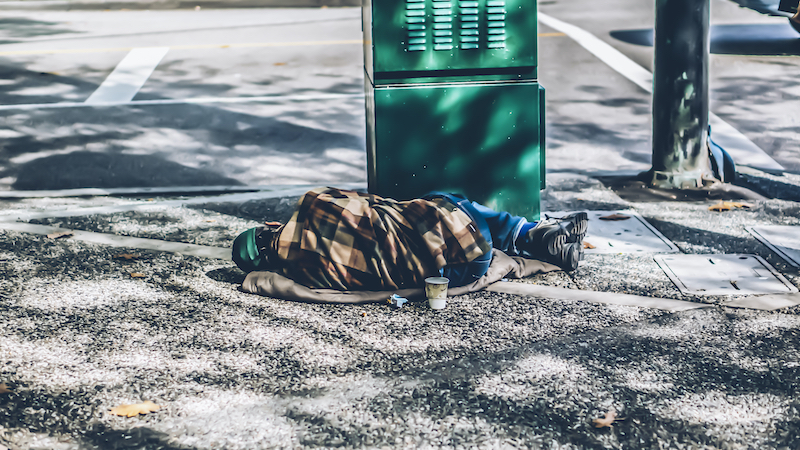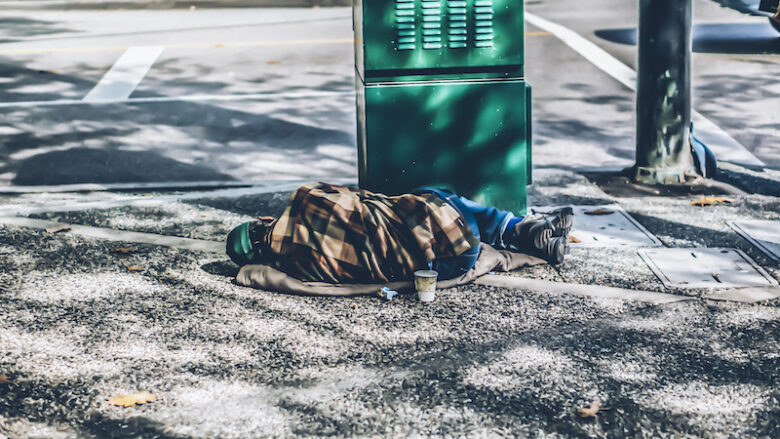Homelessness is an ongoing problem in the United States. According to the National Alliance to End Homelessness, in January 2020, there were 580,466 people experiencing homelessness in America.
Clearly, homelessness, and youth homelessness, in particular, is a major problem in our society. In spite of that, however, myths about homelessness continue to falsely circulate. Unity Parenting and Counseling is here to dispel the myths surrounding youth homelessness in the United States. First, we will identify common myths about youth homelessness. Then, we will discuss the real facts about youth homelessness. Finally, we will describe how Unity Parenting and Counseling works to end youth homelessness in the South Side of Chicago.
Myths and Facts About Youth Homelessness

People make assumptions about why youth homelessness is such a huge problem in the United States. The portrayal of homelessness in the media does nothing to correct these assumptions. As a result, there are many misconceptions about homelessness.
Here are 10 common myths about homelessness and the true facts regarding homelessness.
Myth #1: Homeless Youth Are Mentally Ill
Fact: Just like the general population of the United States, homeless people can experience mental illness. This does not mean, however, that all people who are homeless are mentally ill or that mental illness causes homelessness. Research states that, at most, one-third of people experiencing homelessness have a serious mental illness.
Myth #2: Homeless Youth Are Addicts
Fact: Research shows that only about 20 to 40 percent of homeless people have a substance abuse issue. The reality is that substance abuse rarely causes homelessness. In fact, homelessness can cause substance abuse because living on the street puts people in frequent contact with drug users and dealers.
Myth #3: Homeless Youth Are Dangerous and Violent
Fact: Homeless youth are more likely to be the victims of violence rather than the perpetrators. When violent acts do occur, they are usually in self-defense.
Myth #4: Homeless Youth Are Criminals
Fact: Unfortunately, many of a homeless person’s daily activities are criminalized, though these activities are a means of survival. Homeless people are likely to be arrested for minor offenses such as littering, loitering, or trespassing. Most homeless youth only turn to crime when all other options have failed them. Many are victims, not perpetrators.
Myth #5: Homeless Youth Are Lazy
Fact: Homeless youth must constantly search for the necessities of life in order to survive. Having to constantly be on the lookout for food, shelter, and a source of income keeps homeless people from being lazy. Additionally, tasks like job hunting become even more challenging when there are barriers such as not having access to a phone, computer, or fixed address on a regular basis.
Myth #6: Homeless Youth Made Bad Choices That Caused Them to Be Homeless
Fact: Homelessness is not necessarily the result of choices. People experience homelessness when they have exhausted all their other options and/or they are dealing with circumstances that make maintaining permanent housing difficult. There are times when discrimination by family members or caregivers forces youth to leave home. Youth who identify as LGBTQ2S+ experience disproportionately high rates of homelessness.
Myth #7: Homeless Youth Just Need to Get a Job
Fact: There are people who are experiencing homelessness who are employed but still cannot afford to pay rent. However, it is much more difficult to find a job while experiencing homelessness. Barriers to employment include not having a permanent address, not having regular access to showers, and lack of reliable transportation. Many times, young people who experience homelessness want to work but struggle in the competitive, low-wage job market.
Myth #8: Homeless Youth Choose to Be Homeless
Fact: Homeless youth leave their families because of abuse, neglect, and violence—not because they choose to, but because they must. Most homeless youth would welcome and accept access to independent housing with support services. People living on the streets often reject the option of unsafe and crowded shelters, not housing in general.
Myth #9: Homeless People Spend All of Their Money on Drugs and Alcohol
Fact: Most of the money that homeless people receive goes toward buying food and basic amenities such as socks, bottled water, and hygiene products.
Myth #10: Homeless Youth Don’t Want Services
Fact: Most youth do want help. They want to have a traditional life like other young people. They want to go to school, start a career, and develop relationships. The services that are available for homeless youth are often limited and young people often don’t know how to take advantage of them. Additionally, many services are difficult or impossible to access without a parent’s signature, proper identification, or medical insurance.
Unity Parenting and Counseling aims to dispel myths and provide facts about homelessness in our quest to end homelessness in Chicago’s South Side.
How Unity Parenting and Counseling Works to End Youth Homelessness in Chicago

Unity Parenting strives to support those who are homeless or in unstable housing situations, abused and neglected children in foster care, and their parents, including those with physical and mental health challenges.
We are invested in making life better, meaningful, and rewarding for young people and families from disadvantaged backgrounds. We empower and equip them with the resources and knowledge that can enable them to transform their lives so that they can add value to themselves and positively impact their local communities.
Unity Parenting and Counseling offers several different services that work together to end homelessness in the South Side of Chicago. These services include overnight shelter for homeless youth, joint transitional housing and permanent rapid rehousing, long-term housing and support services for homeless youth with disabilities, transitional housing for pregnant and parenting youth, and stable housing for homeless youth who are living with HIV/AIDS.
Unity Parenting and Counseling works to meet the needs of at-risk young people and struggling families. The variety of housing and support services helps people achieve stability in their lives and achieve their personal goals.
Help Unity Parenting Fight Homelessness
Unity Parenting and Counseling offers programs and services to families in need in Chicago. Unity’s programs and services are designed to meet the needs of persons, populations, and communities who are underserved and ignored. Our goal is to support each person in achieving stability. Donate to Unity Parenting and Counseling today to help support our mission.
